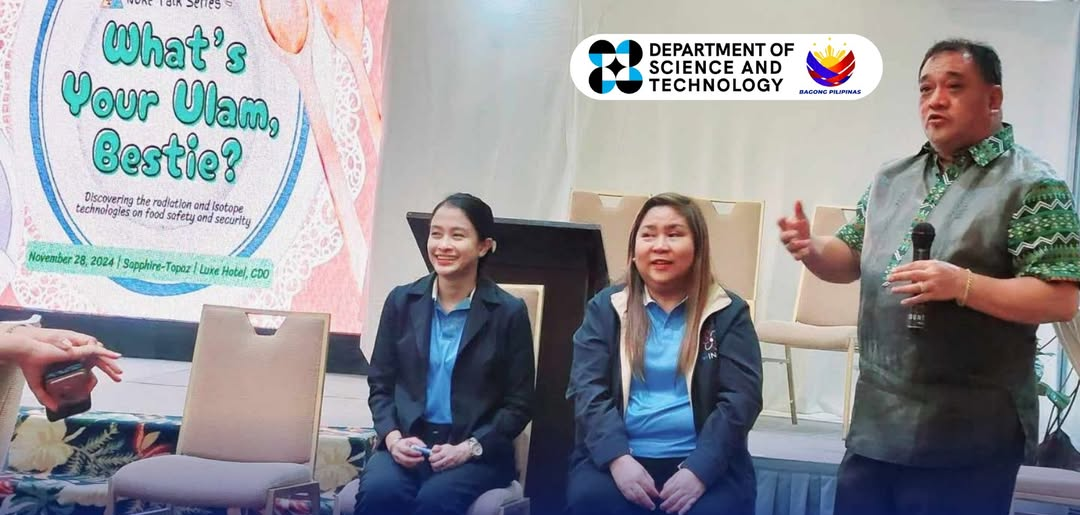CAGAYAN DE ORO — While nuclear science may still seem mysterious to many, it plays a crucial role in ensuring the authenticity and safety of the food we consume. This was emphasized at the “What’s Your Ulam, Bestie?” forum, held on November 28, 2024, at the Limketkai Luxe Hotel, as part of the National Science and Technology Week (NSTW) celebrations.
Raymond J. Sucgang, an expert in nuclear analytical techniques from the Department of Science and Technology-Philippine Nuclear Research Institute (DOST-PNRI), explained how nuclear science is revolutionizing food safety. He highlighted the use of isotope techniques as one of the most effective methods for checking the purity and authenticity of food products, both processed and unprocessed.
“Unlike traditional methods like real-time polymerase chain reaction (RT-PCR), which are effective for detecting DNA in raw foods, isotope techniques can analyze food that has already been processed and lost its DNA,” Sucgang said. “The technique identifies the isotope fingerprint of a product, allowing it to be traced to its origins and verifying its purity, organic status, or even its adherence to halal standards.”
Isotope analysis can even track a product’s journey, including tracing its geographical origin and production history. “Isotope techniques can be as precise as tracing the travel history of a person by examining isotopes in their hair,” Sucgang revealed.
The forum also delved into other nuclear technologies relevant to food safety, with discussions on radiation processing techniques presented by Haydee M. Solomon. Radiation processing, Solomon explained, is used to extend the shelf life of food and enhance food safety. Another highlight of the event was Kristelle Mae C. Tardecilla’s presentation on “Future Food,” which featured products made from superworms—a novel and sustainable food source that quickly captured the interest of attendees.
The event was further enriched by inspiring contributions from Mohammad Nur Casib, the Philippines’ first-ever Nuclear Ambassador. Casib, a student from the Philippine Science High School-Central Mindanao Campus, recently won a gold medal and the highest score at the first International Nuclear Science Olympiad, earning him recognition as a global leader in nuclear science.
DOST-PNRI Deputy Director Dr. Vallerie Anne I. Samson and Chief of the Nuclear Services Division, Dr. Preciosa Corazon B. Pabroa, also delivered messages emphasizing the importance of nuclear science in advancing food safety and ensuring the integrity of food products in the country.
The forum, which attracted a wide range of attendees, including students, experts, and industry professionals, served as an informative and engaging platform for discussing the critical role of nuclear science in food safety, sustainability, and security.


